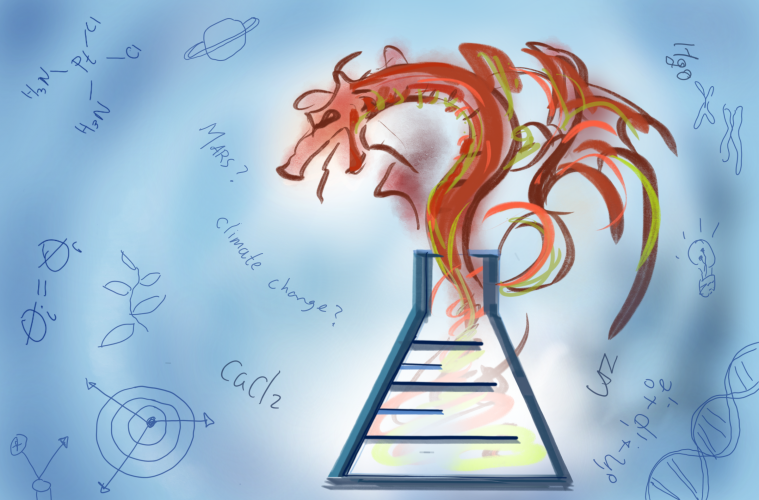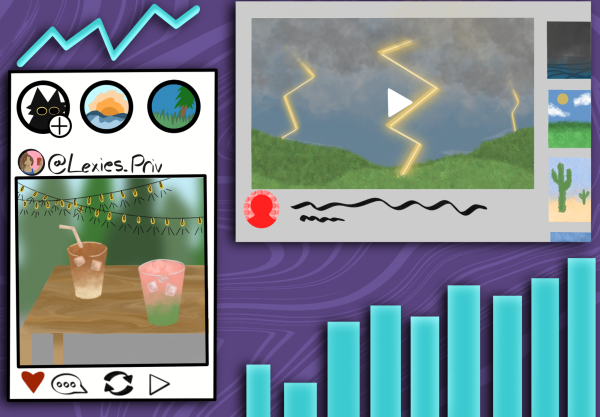The Science Hub: research on death, new dwarf planet, U.S. to leave Paris climate accord
The Science Hub is a bi-weekly newsletter to update you on science headlines, including a piece by guest writer Alex Dodos.
November 9, 2019
New research on the nature of death
They say the brain is the most important organ in your body—according to the brain. The brain has such a big ego, in fact, that it is incapable of acknowledging its own mortality.
Researchers at Israel’s Bar Ilan University monitored the brains of subjects shown a series of faces accompanied by words related to death. Upon seeing their own face linked to words like “burial” and “funeral,” activity in the brain area involved in making predictions decreased significantly.
This suggests that for the brain, death is inevitable for everything except itself.
Even when death is imminent, the brain has a trick for that, too. Some researchers hypothesize that the brain releases a surge of endogenous Dimethyltryptamine (DMT), the most powerful psychedelic drug known to man, before it shuts off for good. A psychedelic research group at Imperial College London found striking similarities between DMT trips and near-death experiences (NDE). They did this by administering DMT to participants and comparing their answers in a questionnaire to people who have had real NDE. Phenomena like the presence of a bright light, a slowed perception of time and of course, the feeling of being near death, were recalled by the psychonauts in the study and NDEs alike.
So if you want the closest thing what death feels like, try DMT.
-Alex Dodos
From Astroid to Dwarf Planet
In between Jupiter and Mars, what could possibly be the smallest world in our solar system sits in between millions of space rocks.
In Chile, a team of French astronomers has obtained images of the Asteroid Hygiea through the Very Large Telescope (VLT) and Spectro-Polarimetric High-contrast Exoplanet Research (SPHERE). These images have proven Hygiea to be round, the final requirement needed for this little asteroid to join as the sixth dwarf planet orbiting our sun.
Given that the Hygiea doesn’t have quite enough mass to clear objects out of its orbit, and has a path around the sun rather than another planet, three out of the four requirements for dwarf-planethood had already been met.
Asteroids come in all shapes and sizes, but a spherical shape is an indicator of having enough mass and gravity to pull itself into the traditional, round planet shape.
Despite the possible title, Hygiea isn’t very big. In the Asteroid belt, it is only the fourth largest object and with a diameter of around 267 miles, it is about as wide as Pennsylvania. If approved by the International Astronomical Union, Hygiea would unseat Ceres as the smallest dwarf planet.
-Naomi Schmitt
U.S. officially begins to exit Paris climate accord
On Nov. 4, the White House formally notified the United Nations of America’s intent to exit the Paris climate accord, a process that will be completed on Nov. 4, 2020, and mark America as the only country to leave the accord.
This notification was the official step needed to fulfill President Trump’s promise to pull the U.S. out of the Paris climate accord, a landmark in the fight against climate change that set a worldwide goal of not letting global temperatures rise by more than two degrees Celsius.
With the U.S. making up 16 percent of all carbon emissions worldwide, the White House’s decision strikes a blow in the global unity that had been achieved with the ratification of the Paris climate accord 3 years ago.
However, although the U.S. as a whole is withdrawing, individual cities, counties, businesses and colleges have pledged to continue to meet the requirements set in the accord, including Ventura.
-Thomas Weldele















